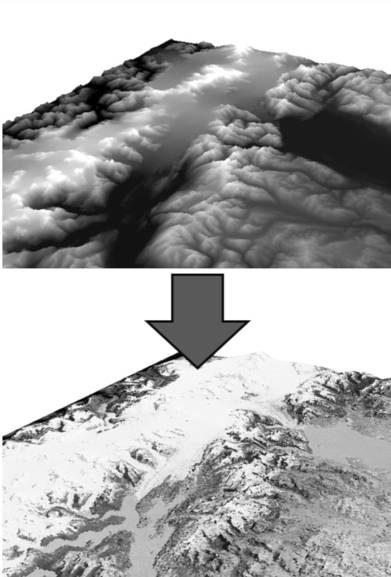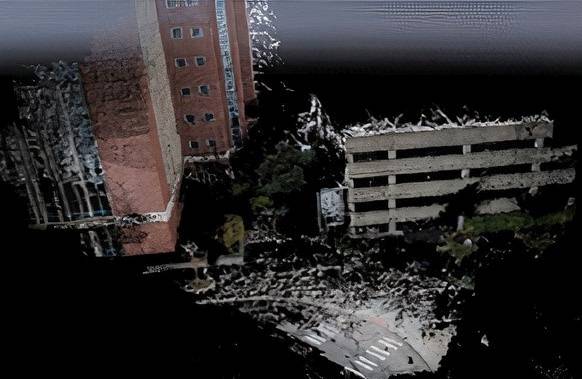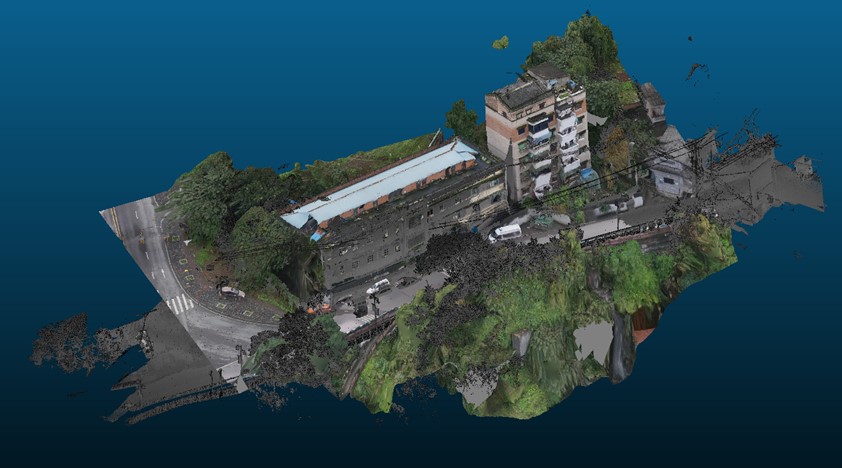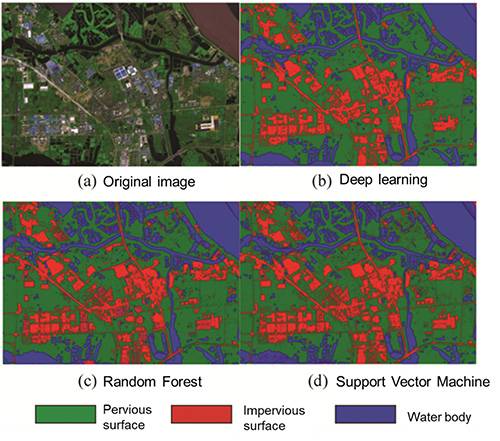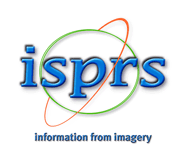General Plan of Activities
Workshops
Year 2022
Tile:
International workshop on remote sensing monitoring for the urban environment - RSMUE2022
Aims and scope:
Urban remote sensing provides images with multiple spatio-temporal-spectral attributes, which can provide qualitative, quantitative, dynamic, and comprehensive information and support for urban environmental monitoring and evaluation, and serve urban planning and management, and ecological environment protection. In recent decades, global urban areas have rapidly expanded, especially in developing countries. Rapid urbanization, along with manufacturing industries and large number of vehicles has resulted in serious environmental problems, called urban diseases, including increased vulnerability to natural hazards, natural vegetation cover decline and arable land loss, urban heat islands, air pollution, hydrological circle alteration and biotic homogenization. Urban ecosystems are strongly influenced by anthropogenic activities. Experts and scholars, researchers, and development personnel as well as companies from home and abroad will be invited to participate in the conference. Figure 2 shows the key days for the workshop.
Workshop Topics:
The workshop is aimed at reporting novel studies on exploiting remote sensing big data to monitor and improve the urban environment, and showing the potential of remote sensing in developing sustainable cities, including but not limited to:
- Urban thermal-environment remote sensing
- Remote sensing image acquisition and processing for the urban environment
- Remote sensing dynamic monitoring of urban expansion
- Remote sensing change detection of urbanization
- Remote sensing retrieval of urban ecological environment
- Remote sensing evaluation of urban human settlements
- Urban sustainability indicators and assessment
- Urban environmental monitoring
Workshop time, venue and scale
Date: 17-18 November 2022
Meeting type: online and offline
Offline address: Academic Lecture Hall, 3/F, Xinghu Comprehensive Laboratory Building, Wuhan University, Faculty of Informatics. China.
Size: around 100 participants (offline and online)
Figure 1. Timeline with important dates of the event.
Workshop Organizers
Organizer: 1. Wuhan University, China; 2. State Key Laboratory of Information Engineering in Surveying, Mapping and Remote Sensing, Wuhan University, China.
Co-organizer: International Society for Photogrammetry and Remote Sensing, Commission II, Working Group 8.
Committee Members
Zhenfeng Shao. State Key Laboratory of Information Engineering in Surveying, Mapping and Remote Sensing, Wuhan University. Director Assistant. China.
Lite Shi. State Key Laboratory of Information Engineering in Surveying, Mapping and Remote Sensing, Wuhan University, China.
Yuan Yao. State Key Laboratory of Information Engineering in Surveying, Mapping and Remote Sensing, Wuhan University, China.
Bin Hu, State Key Laboratory of Information Engineering in Surveying, Mapping and Remote Sensing, Wuhan University, China. Postdoctoral.
Hongping Zhang, State Key Laboratory of Information Engineering in Surveying, Mapping and Remote Sensing, Wuhan University, China. Postdoctoral.
Workshop call for Papers
Participants should send their registration slips, to Bin Hu, email: hubin763259288@whu.edu.cn, and abstracts to the Easy Chair submission system by 15 October 2022 and specify how to participate in the conference online or offline. The abstract should include the title of the paper, author's name, institution, Correspondence address, postal code and email address, keywords (3-5), and abstract (300-700 words).
Recommended journals for excellent papers:
Geo-spatial Information Science (https://www.tandfonline.com/toc/tgsi20/current)
Workshop Fee
|
|
Early Bird (15/9/2022) |
Regular (15/10/2022) |
One Day |
|
Full Registration |
1600¥ |
2000¥ |
1200¥ |
|
Student Registration |
800¥ |
1000¥ |
600¥ |
Notes for conference registration payment: 1. Payment method: Bank wire transfer or on-site payment; 2. Bank wire transfer Wuhan University remittance account number.
Year 2023
Tile:
International Workshop on Photogrammetric and computer vision techniques for video surveillance, biometrics, and biomedicine - PSBB23
Aims and scope:
The event is planned to present and discuss novel achievements in photogrammetric research for environmental monitoring, biomedical science, and medicine. Vision-based techniques have a great impact on biomedical analysis, monitoring and diagnostics, providing valuable data and processing techniques for physicians and experts. The aims of the workshop will be focused on providing the platform and possibilities for sharing state-of-the-art techniques and results in the field of biomedical data processing and analysis. We invite students, academics and industry researchers join of the conference that will provide an exceptional value for the-state-of-the-art on biomedical science image processing and analysis. Figure 2 shows the key days for the workshop.
Workshop Topics:
- Environmental monitoring, motion analysis, biometrics, and biomedicine
- Human body 3D modeling, measurement, and shape analysis
- Human motion 3D capturing and analysis
- Medical imaging, visualization, and systems
- Vision-based computer-aided diagnostics
- Deep learning for surveillance and biomedicine
- Virtual and augmented reality
- Image analysis and photogrammetric applications for biometry and biomedicine.
Workshop time, venue and scale
Date: April 26-29, 2023
Meeting type: online and offline
Offline address: Lomonosov Moscow State University (MSU), Moscow, Russia
Size: around 60 participants (offline and online)
Figure 2. Timeline with important dates of the event.
Workshop Organizers
Organizer: 1. State Research Institute of Aviation System (GosNIIAS, Russia), Moscow; 2. Institute of Physics and Technology (MIPT, Russia); 3. Lomonosov Moscow State University (MSU, Russia).
Co-organizer: International Society for Photogrammetry and Remote Sensing, Commission II, Working Group 8.
Committee Members
To be agreed
Workshop call for Papers
Participants should send their registration slips and abstracts to knyaz@gosniias.ru and must specify how to participate in the conference online or offline. The abstract should include the title of the paper, author's name, institution, Correspondence address, postal code and email address, keywords (3-5), and abstract (300 words).
Workshop Fee
To be agreed
Year 2024
A - Tile:
ISPRS TC II Symposium – USA (fall / spring)
Aims and scope:
The event of the Photogrammetry Commission focuses, at various scales, on geometric, radiometric, and multi-temporal aspects of image- and range-based 3D surveying and modeling.
WG8 sessions at the Symposium
- Regular session
- Environmental monitoring in the World's most important mountain ranges
- Urban environmental monitoring for anthropogenic activity mitigation
B- Tile:
Geomatics in Environmental Monitoring – GEM24
Aims and scope:
Climate change affects human societies, economies, and the natural environment. It will increasingly become a challenge in terms of water quantity and quality, as raising temperature on the planet will increase evaporation of water contained in soils and water bodies. This may increase the planet's vulnerability as natural disasters are becoming more and more frequent. Remote sensing/photogrammetric methods enable data analysis from a different perspective and offer a potentially rapid, useful, and complementary research tool for deriving metrics information over space and time at various scales. The developments in concept and algorithmic design supported by ever-increasing computer power have resulted in dramatic improvements in data processing, and information extraction performance. Clearly, the full exploitation of the state-of-the-art in Geomatics Engineering provides powerful tools to deliver accurate and reliable observations of the Earth’s processes and can give explanations to many complex phenomena. The event will focus on environmental monitoring (natural and urban) using geospatial data and technologies focusing on Latin America and considering the following topics: floods, fires, natural hazards, glaciers, GLOF, emergency management, air quality, agriculture, forestry, volcanoes, ocean, etc. We invite researchers, professionals, educators and students to present and discuss the most recent innovations, trends and solutions embraced in the field.
Conference Topics:
- Environmental monitoring in global change assessment
- Land 2D-3D detection, analysis, and error impacts
- Remote sensing and photogrammetry change detection
- Deformation tracking by Geomatics techniques
- Innovation technologies: AI applications
- UAVs mapping for natural management
- Remote sensing in urban environmental quality
Workshop time, venue and scale
Date: Fall 2024 (Southern Hemisphere)
Meeting type: online and offline
Offline address: Mendoza, Argentina
Size: around 150 participants (offline and online)
Workshop Organizers
Organizer: 1. Andean Geomatics Lab-IANIGLA-CONICET, Argentina; 2. National Geographic Institute, Argentina; 3. National Commission on Space Activities, Argentina.
Co-organizer: International Society for Photogrammetry and Remote Sensing, Commission II, Working Group 8.
Committee Members
To be agreed
Workshop call for Papers
Participants should send their registration slips and abstracts to mlenzano@mendoza-conicet.gob.ar and must specify how to participate in the conference online or offline. The abstract should include the title of the paper, author's name, institution, Correspondence address, postal code, and email address, keywords (3-5), and abstract (300 words).
Workshop Fee
To be agreed
Year 2025
ISPRS workshop PSBB25. April 2025, Moscow, Russia
This event will have the same characteristics as the workshop organized in 2023.
Social Media
Social media is changing the world; it has become the new way of communication. Social media has helped many businesses grow and promote themselves and has helped people find a better way to connect and communicate with one another. Currently, the ISPRS communicates its activities in general through its website (https://www.isprs.org/). However, we consider that in this world where communication is a priority, it would be important for ISPRS to open to new digital tools for communication. This would have a positive impact, and we could reach more people who might be interested in what the Society is doing. We propose to extend the boundaries to other social networks such as Instagram, Facebook, Linkedin, and Twitter. In this way, the Society, commissions and working groups could communicate what they are going to do.
WG II/8
